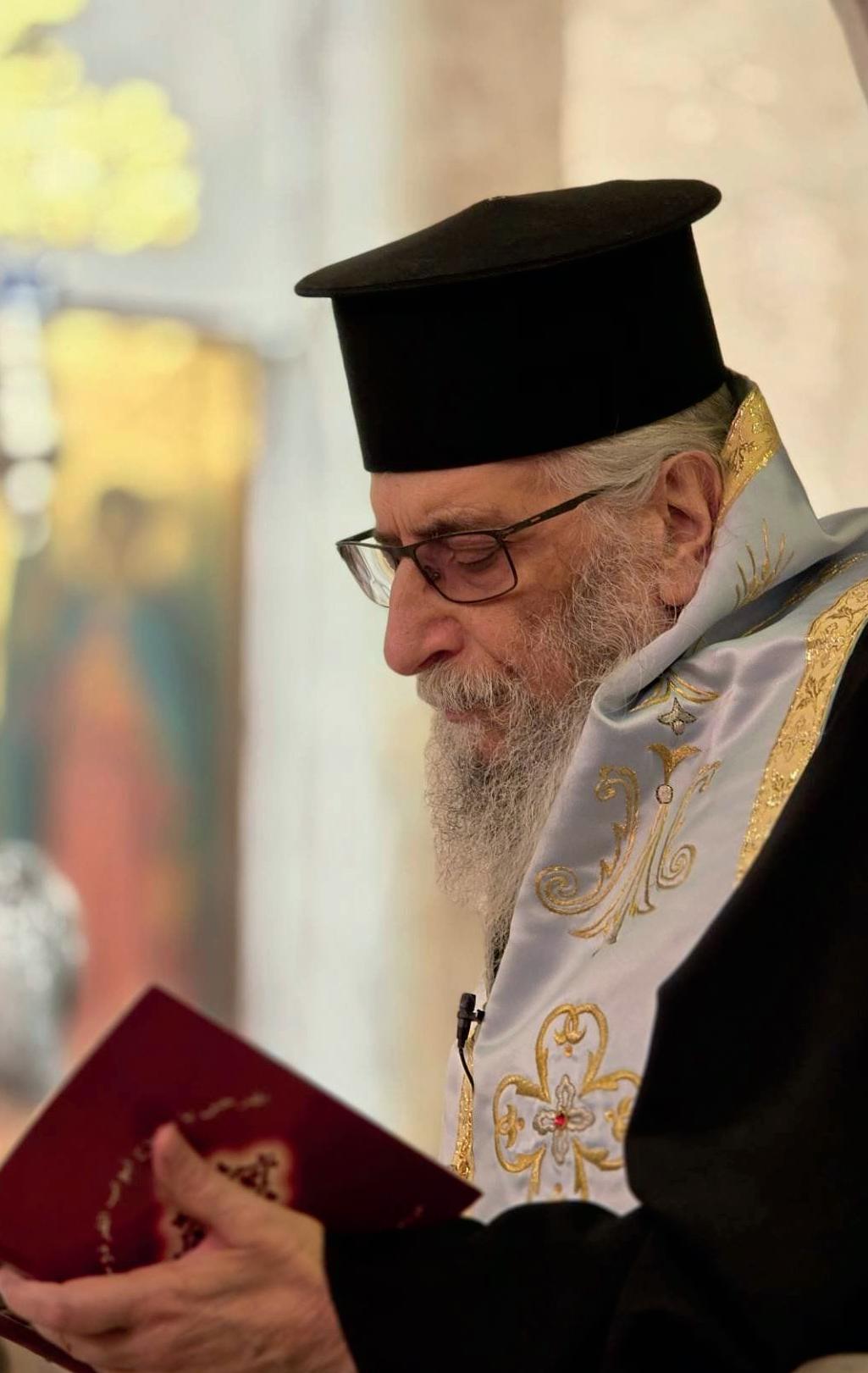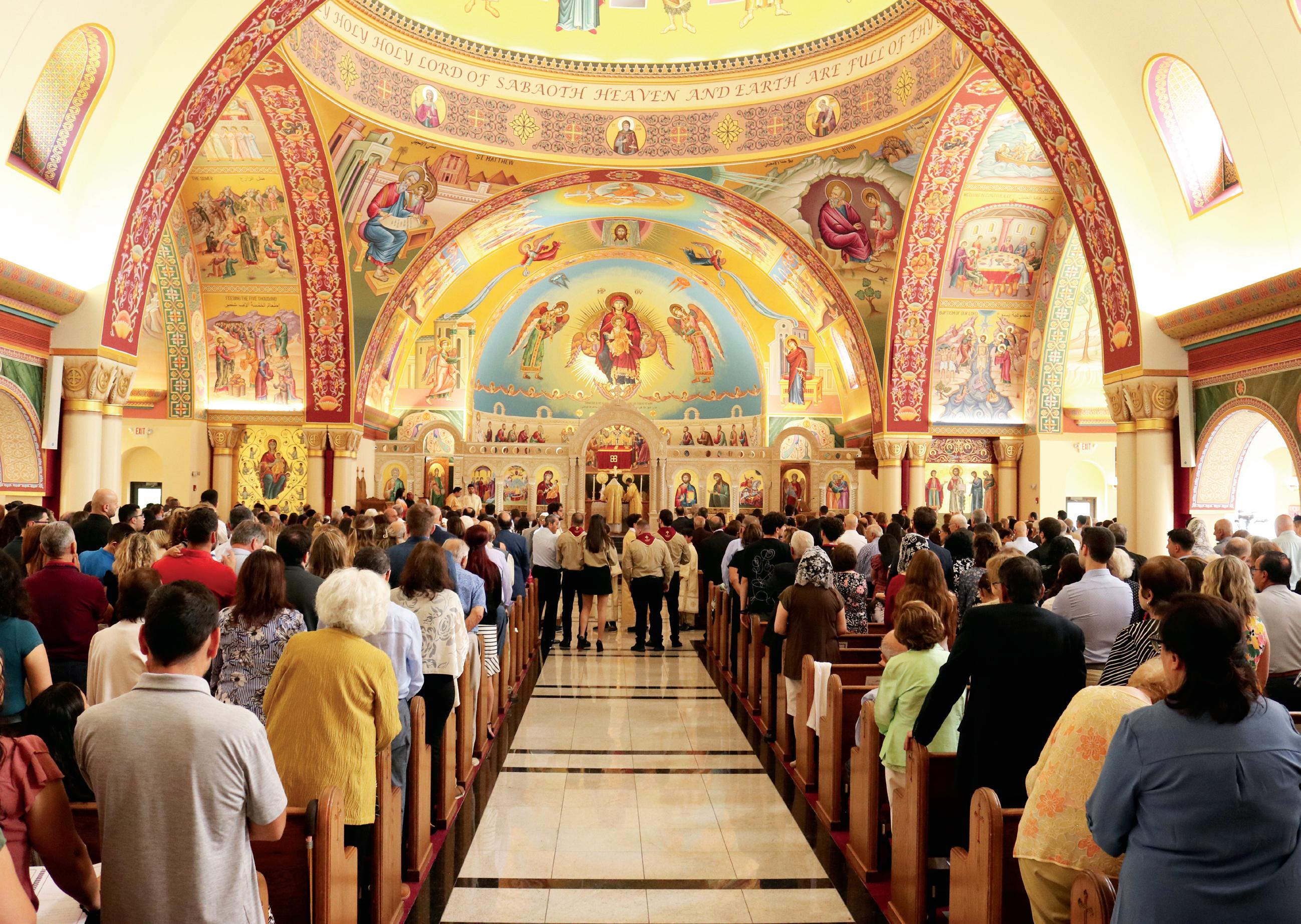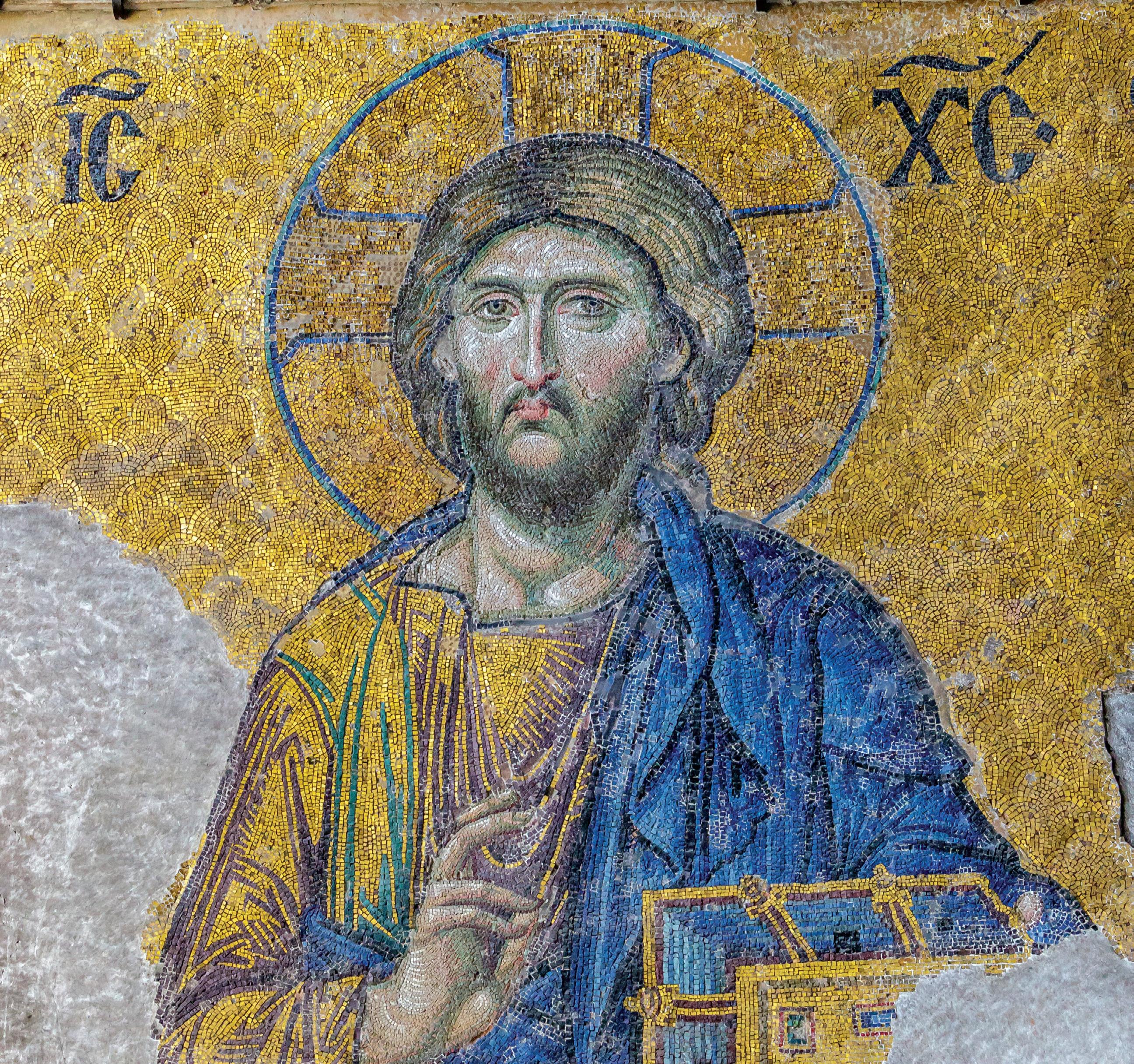
8 minute read
Prayer
What is prayer? Why do we pray? Why do we need prayer?
These are important questions. Prayer is a way to connect with God and with others as well. There are two kinds of prayer: individual and communal. Through prayer, we acquire from God power and consolation.
The human being is weak, and needs the strength and consolation of his Creator. Acquiring this divine strength and power through prayer is a way to help one’s neighbor. The praying man or woman is an imitator of the angels. The angel through its constant prayer acquires power and light from God. It uses this power for the evangelization and ministry of others. It cannot take the place of the Savior, but as an intercessor it assists God in the salvation of others, guiding them on the path of salvation. Each human being acquires this strength through his or her fervent prayers, through his or her nightly vigils. Thus, he or she earns great consolation that makes one’s soul and the souls of others rejoice.
“Lord, teach us to pray… So He said to them, ‘When you pray, say: Our Father in heaven … do not lead us into temptation, but deliver us from the evil one” (Luke 11:1). “Watch and pray, lest you enter into temptation” (Mark 14:38). Prayer leads each person, once again, to God. Hence, the grace of
God pours into his or her heart, rendering him or her strong in the power of God. The devil is not chased easily, for, as the Bible says, he is “a strong man” (Mark 3:27).
“Rejoice always, pray without ceasing, in everything give thanks” (1 Thessalonians 5:17). St. Isaac the Syrian says: “Struggle to acquire the experience of prayer and you will acquire all virtues.” Prayer pushes us to participate in the pain and struggle of others. Look at the angels: they are “sent forth to minister for those who will inherit salvation” (Hebrews 1:14). It is a very fast way of communication, faster than the speed of light. Prayer aims at restoring peace to a world of conflict. This is why many ask the priests to pray for them.
Intercessory Prayer
Prayer is a personal experience for the soul of each human being. It is also a foretaste of the Kingdom. Prayer is more advantageous than sleep! It is a foretaste of God’s abounding love. Prayer is more than just intercession: it is an apostolic mission. Hence, intercessory prayer is a continuous, quiet, open, reverberating personal experience, that illuminates us and others. It calls for the love of God and mercy to descend upon all. This is our responsibility, and it is not limited to the priest. The misery of the world propels us to pray fervently to attract God’s mercy. This is our great responsibility. The miserable, suffering world awaits daily our prayer because it longs for the mercy of God. The world needs us, needs our prayer, our intercession, or our communication with God through prayer and supplication, because it longs for God’s mercy.
This is why we constantly repeat in our prayers: “Lord have mercy.” Despite our weaknesses and sins, we have to transmit through prayer our love and the love of God that is within us. Again, intercessory prayer is an apostolic work.
The process of prayer becomes a resurrectional process, a process of rising from death and sin, this is why the Bible says: “This kind can come out by nothing but prayer and fasting” (Mark 9:29). The devil works in the world. Through our prayer, we participate in the safeguarding of the world’s equilibrium. This is why it is not enough for us to pray for ourselves; we should pray for the whole world as well, just as the Theotokos did. This is why St. John of the Ladder says: “The prayerful man/ monk abandons the world in order to unite himself to everyone” through his prayer.
The Jesus Prayer
Man cannot accomplish anything without divine Grace. St. Paul exhorts us, saying that “supplications, prayers, intercessions, and giving of thanks [should] be made for all men” (1 Timothy 2:1). Spiritual life has prayer as its basis. The contemporary elder, St. Joseph the Hesychast, says, “If someone asks you for spiritual guidance, exhort him to pray before anything else, as prayer will teach him the rest and sanctify him.” At the beginning of spiritual life, prayer is exhausting, as one forces himself or herself to pray. With practice, however, prayer becomes spontaneous. Then, the Holy Spirit gives one a strong desire for prayer, and it is no longer man who prays, but the divine Spirit who prays through him. As the Holy Spirit continues His work, prayer becomes continuous, day and night, while man works or rests. Thus, man fulfills St. Paul’s commandment to “pray without ceasing and in everything give thanks” (1 Thessalonians 5:17).
The practice of the Jesus prayer, “Lord Jesus Christ, Son of God, have mercy on me, a sinner,” presupposes humility and almsgiving, confession and love of one’s neighbor. The goal, according to St. Seraphim of Sarov, is to acquire the Holy Spirit. As
St. John of the Ladder explains: “The beginning of prayer is like rowing a boat so that it begins to sail. At the end, one no longer needs to row, but only to spread the sails leaving the boat to be moved by the wind of the Holy Spirit.”
Last but not least, there is a difference between the Jesus prayer and the prayer of the heart. As St. Macarius of Egypt says in his nineteenth homily:
It is, however, necessary at first for one coming to the Lord to force himself thus to do good, to love, to humble himself … even if he should not in his heart be so inclined …. Let him push himself to prayer even when he does not possess the prayer of the Spirit. And so, God, seeing him striving so and pushing himself by determination even if the heart is unwilling, gives him the authentic prayer of the Spirit, gives him true charity, true meekness, ‘the bowels of mercies’ (Colossians 3:12), true kindness, and, simply put, fills him with the fruits of the Spirit.
Prayer Helps One Know Oneself
Prayer is man’s fellowship with God. As the famous proverb says: “Tell me who your friends are, I will tell you who you are.” Prayer unites man with God and with others. Prayer is a mirror that clarifies one’s state. The man who truly prays stands before God as if it were the Last Judgment anticipates that day. Jesus calls out to us: “Come to Me, all you who labor and are heavy laden, and I will give you rest.

Take My yoke upon you and learn from Me, for I am gentle and lowly in heart, and you will find rest for your souls. For My yoke is easy and My burden is light” (Matthew 11:28–30).
Yes, the yoke of prayer is difficult at first. This is why when man starts coming near to the Lord, he must force himself to pray, even if his heart was unwilling. When God sees his struggle, despite the unwillingness of the heart, He will give him pure prayer. This is what St. Macarius of Egypt also says in his nineteenth homily, and he further adds: “Man must push himself to love, even if he does not have love …. He must push himself to do good …. God, seeing him striving, will give him true charity, true meekness, true kindness. Simply put, God will fill him with the fruits of the Spirit.”
Fervent prayer impels the praying man to serve others. Look at the angels, who are “ministering spirits sent forth to minister for those who will inherit salvation” (Hebrews 1:14).
Prayer and Communion with Others
Through prayer, the individual enters into communion with God and with others. Prayer can restore the unity of opposites. One goes out of himself, out of his loneliness, boredom, and nothingness. He acquires peace and quietness, and he becomes discerning and vigilant in his thoughts. Prayer propels us to participate in the struggles and joys of others. This is what we call the universality of prayer. Long is the discussion on prayer and its effectiveness. All of this is part of the practical life. True prayer or pure prayer leads us to theoria and the illumination of the mind. It is the perfection of the grace of God that makes our mind the mind of Christ (1 Corinthians 2:15, Philippians 2:5).
Prayer Is Experiential
This is not merely theoretical, logical thinking, or a way of piety, but is the fruit of a lived experience in hearts purified of passions. It is a truth that is not knowable except through the uncreated energies of God. If humanity’s prayer ceases, then the end of the earthly life will come because of the aggregation of evil. Then, “there should be delay no longer” (Revelation 10:6).
Prayer, in the end, is an expression of our yearning for God and for our neighbor, of our love for God and for others. It is difficult because it is free, and does not seek material rewards. It is a way of communication, a communication faster than the speed of light, better than all modern ways of communication. It consists of both hearing and vision. This is all to restore peace to a world continuously in conflict. This is why many ask the priests to pray for them. THROUGH PRAYER,


